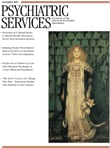Free Food for Millionaires
In her first novel, Free Food for Millionaires , Min Jin Lee largely succeeds in unraveling the story of postcollege, Korean immigrant Casey Han, who is still challenged by her family traditions while striving for acceptance and personal fulfillment in the largely assimilated world of New York high finance. As the main character's life unfolds, Lee masterfully reveals the fallible interpersonal relationships that define Han's struggle. She also manages to tell the story from multiple perspectives, allowing the characters richness and authenticity that is often missing in the single point of view.
This story is interesting, and these conflicts and complex individuals have much to offer mental health professionals. Although the characters are not always likable, I found myself relating to them as typical of the people I know, work with, or become at times. The book is not specifically about mental illness, but by emphasizing the mental lives of her characters, Lee captures the realities, raw interactions, and imperfections that define day-to-day relationships. She deftly highlights her characters' passage through hardships, uncertainty, and self-reflection toward a more palatable concept of the self. In fact, Lee states that she chose the name Han for the main character because in Korean it reflects severe angst and suffering amidst difficulty and loss.
Lee moved to Queens, New York, at the age of seven from South Korea with her family. Although they did not operate a dry cleaning business as in the novel, her parents ran a wholesale jewelry business, and she attended public school. She graduated from Yale and completed law school at Georgetown. The story has at least some autobiographical reflections and adds to Lee's credibility as a commentator.
It would be easy to categorize the book as just one more coming-of-age story involving an immigrant family. Somehow, it seems much more than that. There is a universal appeal in Lee's writing that transcends culture and exposes the reader to the characters at a very human level. A long novel, at 576 pages, it rarely dragged and managed to keep my interest throughout. Free Food For Millionaires will likely please practitioners of any field involving the human condition.



